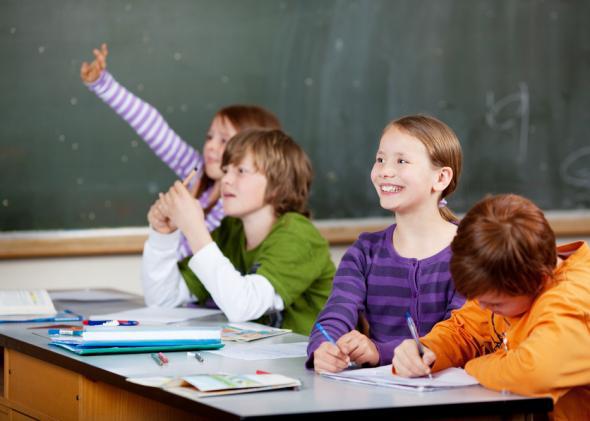Richard Weissbourd and Stephanie Jones are two of my favorite people to talk with about children and teenagers. They teach at the Harvard Graduate School of Education, and they want to shift the frame for kids’ moral development—away from thinking about themselves and toward caring about others.
They are publishing a new report today that makes the challenge clear. Their initiative, the Making Caring Common Project, surveyed 10,000 middle and high school students about which values are most important to them. (The kids came from 33 schools across the country and varied in race and class.) Eighty percent chose high achievement or happiness as their top priority. Only 20 percent picked caring for others. The teenagers tended to see self-interest as more important than fairness.
Kids who gave caring low priority tended to score low on a scale for empathy and also were less likely to say they would volunteer in their free time or help tutor a friend. When kids rank their priorities this way—and think their peers do as well—they’re “at greater risk of many forms of harmful behavior, including being cruel, disrespectful, and dishonest,” Weissbourd and Jones write.
Are kids reflecting their parents’ values when they choose success and achievement over caring? They say yes. While most parents and teachers have told other researchers in the past that they rank children’s capacity for caring above achievement, kids don’t believe them. Four out of five of the teens Making Caring Common surveyed said their parents cared more about achievement or happiness than caring. They saw teachers this way, too.
What’s to be done? Weissbourd and Jones say that kids need to practice caring for other people, and they need role models. Check and check. One question I try to ask myself: When my kids tell me they’ve been kind to someone or helped someone who seems vulnerable, am I just as full of praise as I am if they ace math tests or English papers?
Weissbourd and Jones make this good point:
Children and youth need to learn to zoom in, listening closely and attending to those in their immediate circle, and to zoom out, taking in the big picture and considering multiple perspectives. It is by zooming out and taking multiple perspectives, including the perspectives of those who are too often invisible (such as the new kid in class, someone who doesn’t speak their language, or the school custodian), that young people expand their circle of concern and become able to consider the justice of their communities and society.
We parents need to help our kids zoom both ways. The full report is here—it’s very much worth a read.
